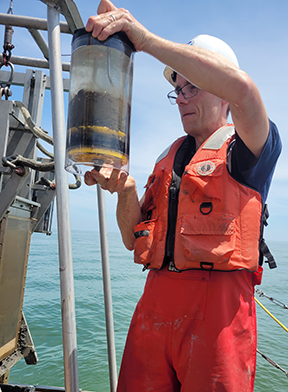
 back to all news
back to all news
Inventing tomorrow: Casey Godwin

Casey Godwin is an associate research scientist in the Cooperative Institute for Great Lakes Research, which is hosted by the University of Michigan School for Environment and Sustainability (SEAS). We asked him to share more about his work in this brief Q&A.

What is your research focused on?
My research is focused on Great Lakes water quality issues. I use approaches that span biological, chemical and geological sciences to address the causes and consequences of harmful algal blooms, hypoxia and invasive species.
What is the impact of this research?
I work with a team of SEAS professional staff, in partnership with NOAA’s Great Lakes Environmental Research Laboratory, to monitor algal blooms and water quality on Lake Erie and Lake Huron’s Saginaw Bay. The most immediate impact of our work comes from providing data on bloom conditions directly to stakeholders and informing an operational forecast from NOAA. Between April and October each year, we perform more then 50 sampling cruises aboard research vessels and collect over 15,000 samples. We deliver monitoring results to the public and government agencies within days of sample collection—a variety of data from the amount and types of algae to toxin concentrations and the presence of genetic markers for harmful algae. The other, more long-term benefit, comes through data synthesis and modeling that quantify relationships between drivers and responses to help inform management of the ecosystem.
Learn more about SEAS research scientists:

